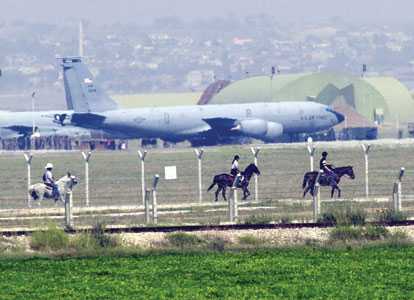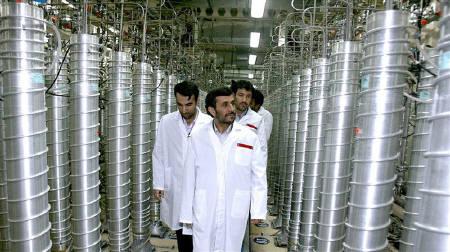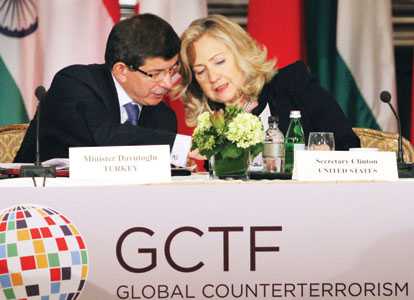WASHINGTON
US Secretary of State Clinton has warned Iran not to ‘miscalculate’ in Iraq, saying US military presence and that of its allies in the region, like Turkey, would remain strong after the withdrawal of all American combat forces by the end of the year. Meanwhile, Ahmadinejad says Tehran’s ties with Baghdad are growing

Iran should not misread the withdrawal of American troops from Iraq as affecting U.S. commitment to the fledgling democracy, Secretary of State Hillary Rodham Clinton said Oct. 23.
President Barack Obama’s announcement Oct. 21 that all American troops would return from Iraq by the end of the year will close a chapter on U.S.-Iraq relations that began in 2003 with the U.S.-led invasion.
Washington has long worried that meddling by Iran, a Shiite Muslim theocracy, could inflame tensions between Iraq’s Shiite-led government and its minority Sunnis, setting off a chain reaction of violence and disputes across the Middle East. Clinton said in a series of TV news show interviews that the U.S. would continue its training mission with Iraq, which would resemble operations in Colombia and elsewhere. While the U.S. will not have combat troops in Iraq, she said the American presence would remain strong because of its bases in the region. “Iran would be badly miscalculating if they did not look at the entire region and all of our presence in many countries, both in bases and in training with NATO allies, like Turkey,” she told CNN’s “State of the Union.”
Asked on NBC’s “Meet the Press” about fears of civil war in Iraq after U.S. troops leave, Clinton said: “Well, let’s find out … We know that the violence is not going to automatically end. No one should miscalculate America’s resolve and commitment to helping support the Iraqi democracy. We have paid too high a price to give the Iraqis this chance. And I hope that Iran and no one else miscalculates that.” In an interview released Oct. 22, Iranian President Mahmoud Ahmadinejad said Tehran has “a very good relationship” with Iraq’s government, and the relationship will continue to grow. “We have deepened our ties day by day,” Ahmadinejad said in the interview.
Iranian-American due to enter plea over Saudi plot
Meanwhile, an Iranian-American accused of plotting to hire Mexican gangsters to assassinate the Saudi ambassador to Washington was due in federal court yesterday in New York, where he was expected to enter a plea. Manssor Arbabsiar, a naturalized U.S. citizen holding Iranian and U.S. passports who lived for many years in Texas where he worked as a used car salesman, was arrested last month in New York. He and co-defendant Gholam Shakuri, who is at large, allegedly conspired to “kill the ambassador to the U.S. of Saudi Arabia, while the ambassador was in the U.S.,” according to court documents. Iran has strongly denied any involvement in what the U.S. says was a plot by the Iranian Revolutionary Guards’ elite Quds force to kill the ambassador by hiring assassins from a Mexican drug cartel for $1.5 million. The two co-defendants are also accused of planning for a “weapon of mass destruction” to be used against the ambassador.
Compiled from AFP and AP stories by the Daily News staff.
via Clinton warns Iran over US presence in Turkey – Hurriyet Daily News.



